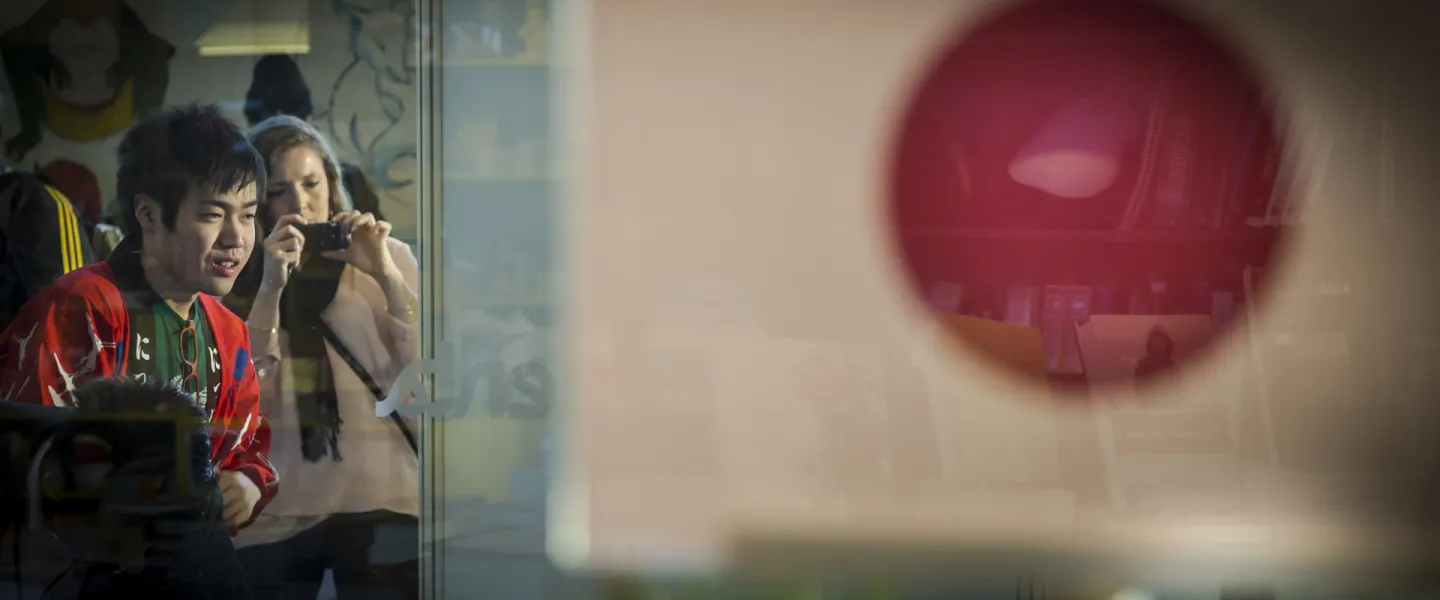Aðalbygging
Aula, the main building
Hrafnhildur Snæfríðar- og Gunnarsdóttir defends her PhD thesis in Educational Sciences specialising in critical studies from the Faculty of education and diversity, University of Iceland:
Ableist Power Relations and Disabled People’s Invisible Work during COVID-19
The oral defence takes place Friday, December 6, at 1 pm in the Aula in the main building of the University of Iceland.
Opponents are Dr Erika Katzman assistant professor at King ‘s University College, Kanada and Dr Rebecca Lawthom professor at University of Sheffield, England.
Main supervisor was Dr Ásta Jóhannsdóttir, associate professor at School of Education, University of Iceland og co-supervisor Dr Lindsay O’Dell, professor at Open University, UK.
Expert in the Doctoral Committee was Dr Kristín Björnsdóttir, professor at School of Education, University of Iceland and Dr Laufey Löve, assistant professor at School of Education, University of Iceland
Dr Berglind Rós Magnúsdóttir professor at Faculty of education and diversity will conduct the ceremony.
All welcome
About the project:
In times of disasters and social upheavals, disabled people are in a particularly precarious position. Research shows that contingency plans and emergency measures are primarily designed to meet the needs and experiences of non-disabled people. Consequently, interventions and support mobilized at a time of crisis often prove inaccessible to disabled people and, at times, may exacerbate their precarious circumstances. During the COVID-19 pandemic that raged at the beginning of the decade, social infrastructure and the public institutions responsible for protecting the rights and well-being of disabled people were heavily tested. Despite the recommendations of international organizations and the appeal of disabled people's organizations about the importance of incorporating the needs and rights of disabled individuals into emergency actions, there are many indications that this was not done.
The study Ableist Power Relations and disabled people’s Invisible Work during COVID-19 focused on the experiences of disabled people in Iceland during the pandemic. The study had two main objectives. First, it aimed to illuminate the experiences of disabled people during the pandemic and increase the theoretical understanding of the structural processes and power dynamics that contribute to their marginalization and subordination in such situations. Second, it aimed to gain insight and practical knowledge about the impact of the pandemic on the lives of disabled people in Iceland, thereby contributing practical knowledge that can be used to improve disaster strategies for the future.
The findings demonstrate that support services and official institutions proved unprepared to meet the challenges created by the pandemic. Pre-pandemic service inadequacies became evident, such as the increasing responsibilization of disabled people and parents of disabled children, presupposing their invisible and unacknowledged work. During the pandemic, these service inadequacies and the normalization of invisible work persisted and exacerbated the challenges faced by disabled people and their families. The findings shed light on shortcomings in services for disabled people and underline the importance of reform work being carried out in collaboration with disabled people and guided by their experience and priorities.
The study is part of a larger research project called Disability in the Time of a Pandemic and aims to shed light on the impact of the pandemic on the lives of disabled people in Iceland. The research was funded by the Icelandic Research Fund (no. 217502-052).
About the doctoral candidate:
Hrafnhildur Snæfríðar- og Gunnarsdóttir (b. 1981) completed a BSc degree in nursing from the University of Akureyri in 2008, an MS degree in gender studies from the University of Iceland in 2011 and an MPhil degree in disability studies from the University of Iceland in 2021. Hrafnhildur has extensive research experience from her years working at the Social Science Research Institute and for the Centre of Disability Research. She is currently employed at Landspitali University Hospital. Her academic interests focus on methodology and critical studies, particularly in the areas of disability studies and gender studies.
Share
Buses 14, 1, 6, 3 and 12 stop at the University of Iceland in Vatnsmýri. Buses 11 and 15 also stop nearby. Let's travel in an ecological way!
